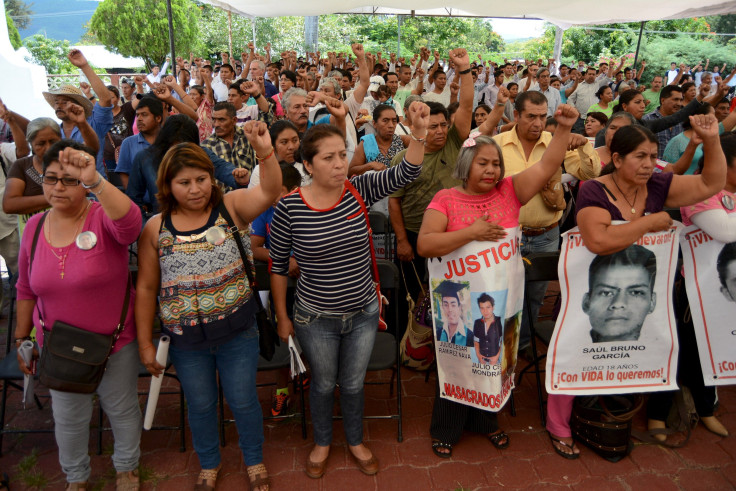Mexican Media Smearing Human Rights Activists Probing Missing Students Case, UN Investigators Claim

Mexico must protect human rights activists from a smear campaign discrediting their work, Union Nations officials urged in a statement. The appeal comes amid an alleged campaign in the Mexican media to portray human rights defenders as corrupt criminals who have misled the public amid reports of growing political instability, poverty and corruption in Mexico.
Human rights leaders in Mexico have been accused of “fraud and corruption, of defending alleged criminals and falsely claiming torture thus promoting impunity,” the U.N. statement noted Wednesday. It did not provide examples of the media campaign against human rights activists.
“The Mexican authorities should publicly recognize that defending human rights and victims of violations of human rights is not only legitimate, but fundamental to strengthen rule of law, accountability and democracy within the country,” said Michel Forst, U.N. special rapporteur on the situation of human rights defenders. “The work carried out by human rights defenders and civil society in Mexico has actively contributed to promoting victim’s access to justice and truth, and is particularly important in a context where serious human rights violations occur and for a large part remain in impunity.”
U.N. special rapporteurs are appointed by the Geneva-based Human Rights Council to investigate human rights concerns in various nations. The titles are honorary. The special rapporteurs are not U.N. staffers and are not paid for their work.
“Any attack against the work carried out by human rights defenders creates a deterrent effect, silencing dissenting views and expressions by all those who exercise their right to freedom of expression or freedom of peaceful assembly and association,” David Kaye, U.N. special rapporteur on freedom of expression, said in the statement raising concerns about Mexico’s media.
Mexico remains one of the world’s most violent places for journalists and self-censorship is widespread. The international press freedom group Article 19 called 2015 “the most violent year” ever for the media in Mexico in a report in March. Reporters in Mexico City and other communities who have tried to cover social protests have been targeted by police, Vice reported. Meanwhile, many Mexican media outlets reportedly have links to major political interests and the ruling Revolutionary Institutional Party.
“Media outlets and their employees face pressure from a variety of actors looking to manipulate or obstruct news content, including owners with political or business agendas, major advertisers seeking positive or neutral coverage, and government officials. However, the most acute threat to independent reporting in Mexico is criminal violence. According to the Committee to Protect Journalists, at least 31 journalists and 4 media workers have been killed in connection with their work since 1992, and another 13 have gone missing since 2005, though other organizations have cited much larger figures,” Freedom House, a press advocacy group, noted in 2015.
Mexico’s government has increasingly been accused of serious human rights violations in recent months by activists, including extrajudicial killings, enforced disappearances and torture. In 2015 alone, there were 453 cases of disappearances, Telesur reported. Mexican officials have more recently faced global accusations of covering up an attack on 43 students who were kidnapped and presumably killed by police in 2014. Mexico’s secretariat of foreign relations told a U.N. special rapporteur on torture last month it could not continue his work in the country and President Enrique Peña Nieto has defended the nation’s investigation into the killings, insisting “the Mexican state has deployed a broad, institutional effort to pursue justice.”
© Copyright IBTimes 2025. All rights reserved.






















